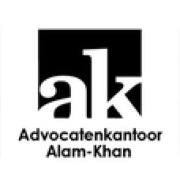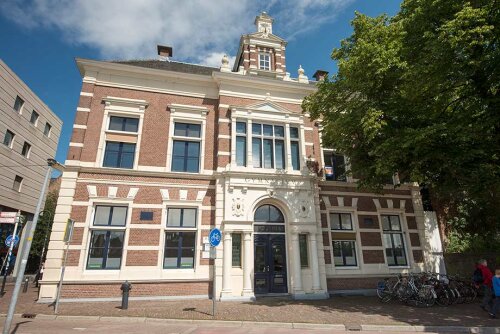Best Dependent Visa Lawyers in Delft
Share your needs with us, get contacted by law firms.
Free. Takes 2 min.
List of the best lawyers in Delft, Netherlands
About Dependent Visa Law in Delft, Netherlands
Dependent visa matters in Delft follow national Dutch immigration law. If you are a family member - typically a spouse, registered partner, unmarried partner, or minor child - of someone legally residing in the Netherlands, you may be eligible to join them under family reunification or family formation rules. Whether you need a provisional residence permit (MVV) to enter the Netherlands or a residence permit after arrival depends on your nationality and the length of stay. The Immigration and Naturalisation Service (IND) administers applications and decides on entitlement, while the Municipality of Delft (Gemeente Delft) handles local registration once you are in the Netherlands.
Why You May Need a Lawyer
Many dependent visa applications are straightforward, but there are common situations where legal help is important:
- Application refusal or complex refusal grounds - if the IND rejects an application, a lawyer can prepare an appeal and explain legal options.
- Proving the genuine nature of a relationship - when the relationship is non-standard, unmarried, or same-sex, additional documentation and legal argument may be required.
- Income, housing, and sponsor eligibility issues - sponsors must usually meet income and accommodation requirements; lawyers can advise on acceptable evidence and alternatives.
- MVV or entry objections - complex cases about whether an MVV is required or how to obtain it often benefit from counsel.
- Criminal records, public order concerns, or deportation risks - these can affect eligibility and require specialist legal representation.
- EU/EEA free-movement issues - if the sponsor is an EU/EEA/Swiss national or a third-country national deriving rights from EU law, the legal framework differs and specialist advice helps.
- Domestic violence, child custody, or protection needs - lawyers can help with emergency measures and coordinate immigration and family law remedies.
Local Laws Overview
Key legal points relevant in Delft include the following:
- National framework - Dutch immigration law administered by the IND governs family reunification and family formation for non-EU nationals. Local municipalities, including Delft, handle civil registration and practical steps after arrival.
- MVV requirement - many non-EU family members need a provisional residence permit (MVV) issued through a Dutch embassy or consulate to enter for a stay longer than 90 days. Some nationals are exempt.
- Residence permit - after entry, dependents must obtain the appropriate residence permit card. The type of permit depends on the sponsor's status - for example, a dependent of a highly skilled migrant receives a dependent permit tied to the sponsor's permit.
- Income and accommodation - sponsors usually must meet minimum income and suitable housing requirements. The exact standard and calculation are set out in IND policies and can change over time.
- Civic integration - some partners arriving from outside the EU face a civic integration requirement (inburgering) or an exam obligation, either abroad or after arrival. Exemptions can apply in some circumstances.
- Registration - every resident who intends to stay must register with the Municipality of Delft and obtain a citizen service number (BSN). Registration affects access to healthcare, bank accounts, social services, and work permission.
- Children and custody - minor children can often join a parent under family reunification rules. The IND requires documentation showing legal custody and consent where required.
- EU/EEA rules - if the sponsor is an EU/EEA/Swiss citizen exercising treaty rights, dependents from outside the EU may apply under EU free-movement rules with different evidential and procedural requirements.
Frequently Asked Questions
What is the difference between family reunification and family formation?
Family reunification generally refers to bringing existing family members to join a sponsor who already lives in the Netherlands. Family formation concerns partners who form a family after the sponsor is already resident - for example, when a person travels to the Netherlands to marry. The IND treats these routes differently and may require additional proof for family formation that the relationship is genuine and not entered into primarily to obtain residence rights.
Do I need an MVV to enter the Netherlands as a dependent?
It depends on your nationality and the intended length of stay. Many non-EU nationals need an MVV if staying longer than 90 days. Nationals of some countries are exempt. Whether an MVV is required will affect where and how you apply - often through a Dutch embassy or directly via the IND.
What documents does the IND usually require for a dependent application?
Typical documents include a valid passport, birth or marriage certificate, proof of a genuine relationship (photos, messages, joint accounts), the sponsor's proof of legal residence and income, proof of adequate housing, and certified translations where required. Additional documents may be requested depending on the case. Documents issued abroad often need legalization or an apostille and certified translation by an approved translator.
How does the income requirement work?
Sponsors are normally required to have a steady income above a minimum threshold to support dependents without recourse to public funds. The specific amount and method of calculation vary by the sponsor's situation and are set by the IND. Evidence can include employment contracts, salary slips, and tax documents. If income is borderline, a lawyer can advise on allowable income sources and how to present the case.
How long do applications take?
Processing times vary by case complexity and IND workload. Straightforward applications may take several weeks to a few months. Applications involving appeals, additional checks, or non-standard relationships can take longer. Always plan ahead and avoid last-minute travel that depends on a pending decision.
Can an unmarried partner qualify as a dependent?
Yes, an unmarried partner can qualify, but the IND requires strong evidence of a durable, exclusive relationship akin to marriage or a registered partnership. This might include at least 6-12 months of cohabitation, shared financial responsibilities, or other indicators of stability. Exact expectations depend on the individual case.
What happens if the IND refuses my application?
If the IND refuses, you will receive a decision letter explaining the grounds and any possible remedies, including the right to lodge an objection and, if that fails, an appeal to a court. Deadlines for objections and appeals are strict. A lawyer experienced in immigration appeals can assess the merits and prepare the case to improve chances of success.
Do children born in the Netherlands automatically receive residency?
No. A child born in the Netherlands to non-Dutch parents does not automatically receive Dutch nationality or indefinite residency. Parents must ensure the child is registered with the municipality and that the child has the correct residence status based on parental permits. Different rules apply if a parent has permanent residence or Dutch nationality.
How does EU/EEA free-movement status affect dependents?
If the sponsor is an EU/EEA/Swiss national exercising treaty rights - for example, working, studying, or self-employed in the Netherlands - dependents may have rights under EU free-movement law. These cases follow different evidentiary standards and may bypass some national requirements. A specialist lawyer can determine whether EU law applies and how best to proceed.
When should I hire a lawyer and how much will it cost?
Consider hiring a lawyer early if your case involves refusals, criminal records, uncertain relationship evidence, complex income or housing questions, EU law issues, or imminent deportation. Many attorneys offer an initial consultation to assess the case. Costs vary by lawyer, complexity, and whether you qualify for legal aid. Always request a clear fee agreement before work begins.
Additional Resources
For reliable assistance and up-to-date information, consider these local and national resources:
- Immigration and Naturalisation Service (IND) - the national authority that processes residence and MVV applications.
- Municipality of Delft - registration in the municipal personal records database and local administrative support.
- Dutch embassies and consulates - for MVV application submissions and visa-related guidance from abroad.
- Legal Aid Board (Raad voor Rechtsbijstand) - information about eligibility for subsidized legal aid.
- Dutch Bar Association (Nederlandse Orde van Advocaten) - to find regulated lawyers specialised in immigration and family law.
- Dutch Council for Refugees (VluchtelingenWerk Nederland) and local support organizations - for practical and welfare support in complex or vulnerable situations.
- Municipal public health services (GGD) - for any required medical or TB screening.
- Certified translators and document legalization services - for translations and apostilles of foreign documents.
Next Steps
If you need legal assistance for a dependent visa in Delft, consider this practical roadmap:
- Check eligibility - review the IND requirements for family reunification or formation that match your situation.
- Gather documents early - collect passports, civil status documents, sponsor residence and income proof, housing evidence, and certified translations where needed.
- Register with the Municipality of Delft upon arrival or before - obtaining a BSN is essential for many services.
- Consider an MVV - if required, determine whether you must apply through a Dutch embassy or via the IND.
- Seek legal advice when required - contact an immigration lawyer for complex matters, refusals, or appeals. Ask for a clear fee agreement and check the lawyer is regulated.
- Explore legal aid options - if you have limited finances, check whether you qualify for subsidized legal aid through the Legal Aid Board.
- Prepare for civic integration obligations - find out if an inburgering requirement applies and start preparing if needed.
- Keep copies and track deadlines - maintain a file of all documents and correspondence, and note objection and appeal deadlines in any refusal letter.
- If in immediate difficulty - in cases of detention, removal, or domestic violence, seek urgent legal and social support from local authorities and specialized organizations.
Taking these steps will help you navigate the dependent visa process in Delft more confidently. If you are unsure at any stage, a specialist immigration lawyer can explain options and represent you before the IND or courts.
Lawzana helps you find the best lawyers and law firms in Delft through a curated and pre-screened list of qualified legal professionals. Our platform offers rankings and detailed profiles of attorneys and law firms, allowing you to compare based on practice areas, including Dependent Visa, experience, and client feedback.
Each profile includes a description of the firm's areas of practice, client reviews, team members and partners, year of establishment, spoken languages, office locations, contact information, social media presence, and any published articles or resources. Most firms on our platform speak English and are experienced in both local and international legal matters.
Get a quote from top-rated law firms in Delft, Netherlands — quickly, securely, and without unnecessary hassle.
Disclaimer:
The information provided on this page is for general informational purposes only and does not constitute legal advice. While we strive to ensure the accuracy and relevance of the content, legal information may change over time, and interpretations of the law can vary. You should always consult with a qualified legal professional for advice specific to your situation.
We disclaim all liability for actions taken or not taken based on the content of this page. If you believe any information is incorrect or outdated, please contact us, and we will review and update it where appropriate.









